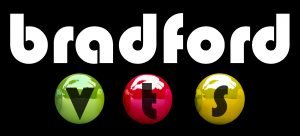- COMMUNICATION SKILLS – popular areas
- Breaking Bad News
- Computers – how to use in the consultation
- Conflict Management
- Consultation Models & Frameworks
- Creative Arts in Communication Skills
- Dysfunctional Consultations
- Language Barriers
- Medical Analogies Database
- Microskills in Communication
- Motivational Interviewing
- MEDICAL SPECIALTIES
- Acute and Urgent Care
- Alcohol & Drugs
- Cardiovascular
- Common Problems in GP
- Complementary & Alternative Medicine
- Dermatology
- Diabetes
- Driving & Flying
- Drugs & Alcohol
- Elderly
- Endocrine Disorders (Thyroid etc)
- ENT (+Oral +Facial Problems)
- Gastroenterology
- Genetics
- Infectious Disease
- Intellectual Disability
- Men’s Health
- Mental Health
- Minor Surgery
- Musculo-Skeletal Medicine (+. Orthopaedics & Rheumatology)
- Neurology
- Ophthalmology
- Paediatrics (Infants & Children)
- Pain Management
- Palliative Care (+ End of Life)
- Renal
- Respiratory
- SAFEGUARDING – adults (+domestic violence +slavery +radicalisation)
- SAFEGUARDING – children
- Sexual Health
- Teenagers
- Travel Medicine
- Urology
- Women’s Health
- QUALITY, SAFETY & GOVERNANCE
- What is Quality of Care & Patient Safety
- Clinical Governance
- EBM & STATISTICS
- Evidence (EBM) & Medical Statistics
- QUALITY IMPROVEMENT TOOLS (all to be developed)
- Understanding The Improvement Model
- Building Networks
- Communication Matrix
- Communication Strategy
- Constraints & Flow
- Doing Evaluation
- Driver Diagrams
- Gantt Charts
- Run Charts
- Statistical Process Control Charts
- Visual Data
- Working Collaboratively
- MONEY
- Finances
- TPDs, CONSULTANTS & PRACTICE MANAGERS
- Training Programme Directors
- Hospital Consultants
- Practice Managers
- A to E
- Aims, Objectives and ILOs
- Appraisal
- Assessment & Competence
- Balint
- Clinical Supervision
- Communication Skills Teaching
- Creative Arts to Teach Medicine
- Curriculum
- Debriefs
- Dyslexia & Dyspraxia
- Educational Theory (important basics)
- English – writing & speaking
- Evaluation of Teaching & Education (& feedback forms)
- Evidence – what makes a good teacher or teaching?
- Exam failure
- Exam stress, nerves & pressure
- F to O
- Facilitation Skills & Small Groups
- Feedback
- Games in Education (& Icebreakers)
- Handouts
- HDR
- How to Study (according to research)
- How to Teach (according to research)
- Icebreakers and Games in Education
- IMGs
- Induction
- Inter Professional Learning (IPL)
- ISCEEs
- Learning Environments
- Learning Needs
- Learning & Personality Styles
- Libraries
- MCQs
- Multiple Trainee Training
- Mentoring (& Mentoring New Trainers)
- OSCEs (+ The OSCE Database)
- P to Z
- PDPs
- Plagiarism
- Presentations & Workshops
- Problem Based Learning
- Race and Racism – equality, diversity & inclusivity
- Random Case Analysis & Reviews
- Referencing
- Reflection
- Remote ONLINE Teaching (Zoom, MS Teams, Blackboard etc)
- Simulated Patients
- Small Groups & Facilitation Skills
- Teaching for Beginners
- Teaching & Lesson Plans *
- Trainer’s Toolkit
- Tutorial Theory
- Tutorial Suggestions
- Workshops by Ram
Our goal here is to make complex educational theory as practical and as accessible as possible for busy medical teachers – to stimulate you, reduce duplication of work and help you add creativity to your educational programme.


